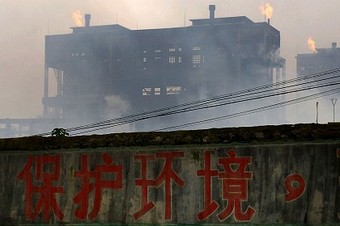Steve Clemons of The Washington Note and the New America Foundation tells us to look closely at this Op-Ed in the Washington Post. Nawaf Obaid, personal advisor to Saudi Ambassador to the US Turki Al-Faisal and all around wonk gives his “personal opinion”. Steve says this is the public version of what the Saudis told Cheney privately this week:
There is reason to believe that the Bush administration, despite domestic pressure, will heed Saudi Arabia’s advice [to stay in Iraq]. Vice President Cheney’s visit to Riyadh last week to discuss the situation (there were no other stops on his marathon journey) underlines the preeminence of Saudi Arabia in the region and its importance to U.S. strategy in Iraq. But if a phased troop withdrawal does begin, the violence will escalate dramatically.
In this case, remaining on the sidelines would be unacceptable to Saudi Arabia. To turn a blind eye to the massacre of Iraqi Sunnis would be to abandon the principles upon which the kingdom was founded. It would undermine Saudi Arabia’s credibility in the Sunni world and would be a capitulation to Iran’s militarist actions in the region.
To be sure, Saudi engagement in Iraq carries great risks — it could spark a regional war. So be it: The consequences of inaction are far worse.
Say what you will about the Saudi regime yanking Cheney’s leash, if it really does work that way. Fact is, this does seem pretty much fait accompli. If the US pulls out, and sectarian violence continues at these levels, the Sunni minority is going to be in trouble. And if Al Qaeda gets in there and saves them, the Saudis will lose a whole lot of street cred. Plus, Saudi Arabia’s Wahabi tough guys are gonna feel they should be in there.
And if Saudi Arabia and Iran are fighting a proxy war in Iraq, you might as well just leave your car in the garage. That or wrestle control of everybody elses oil, like the Russians. Or maybe Nigeria. I hear the Delta is nice this time of year. Get the rollerblades out of the closet and flip the wheels. I really wonder what oil prices will look like come 2008.

Comments